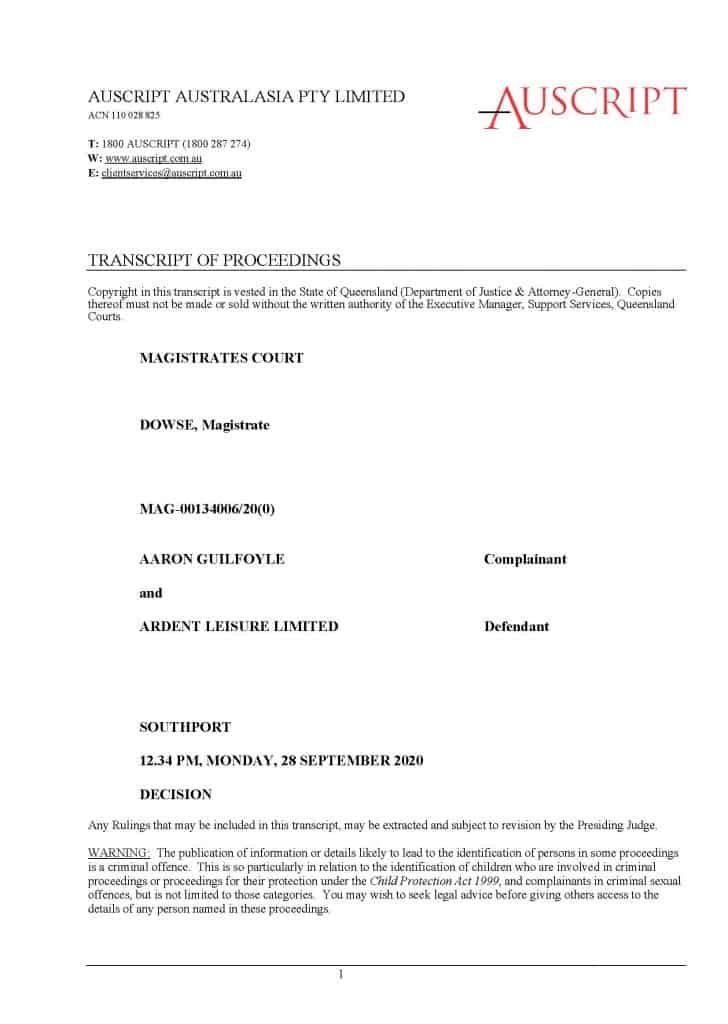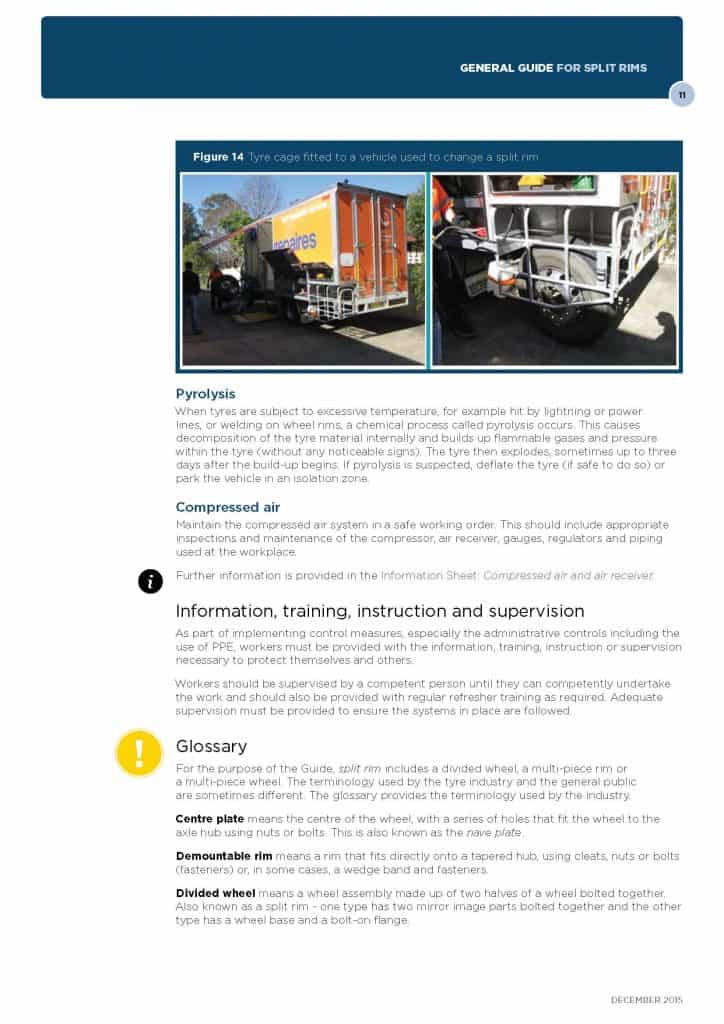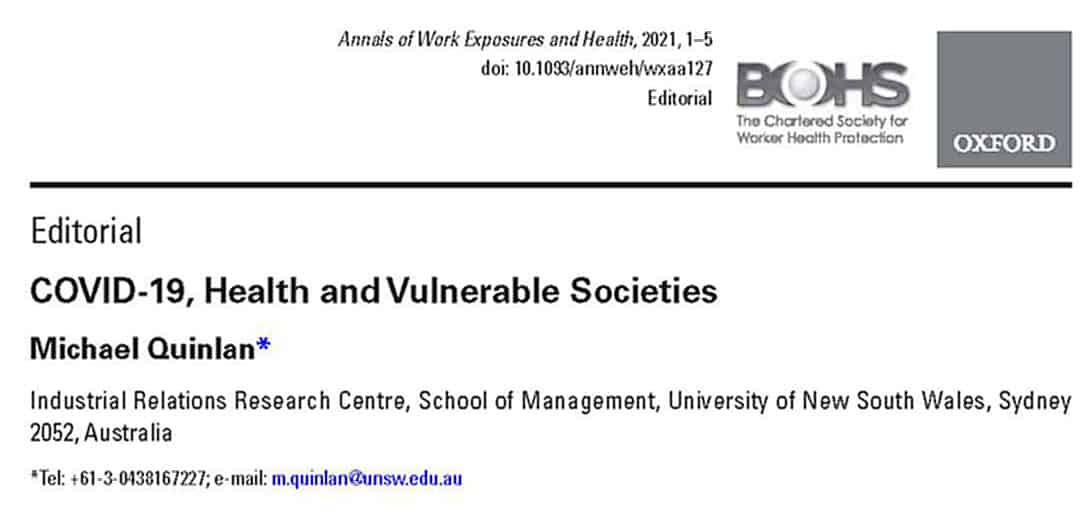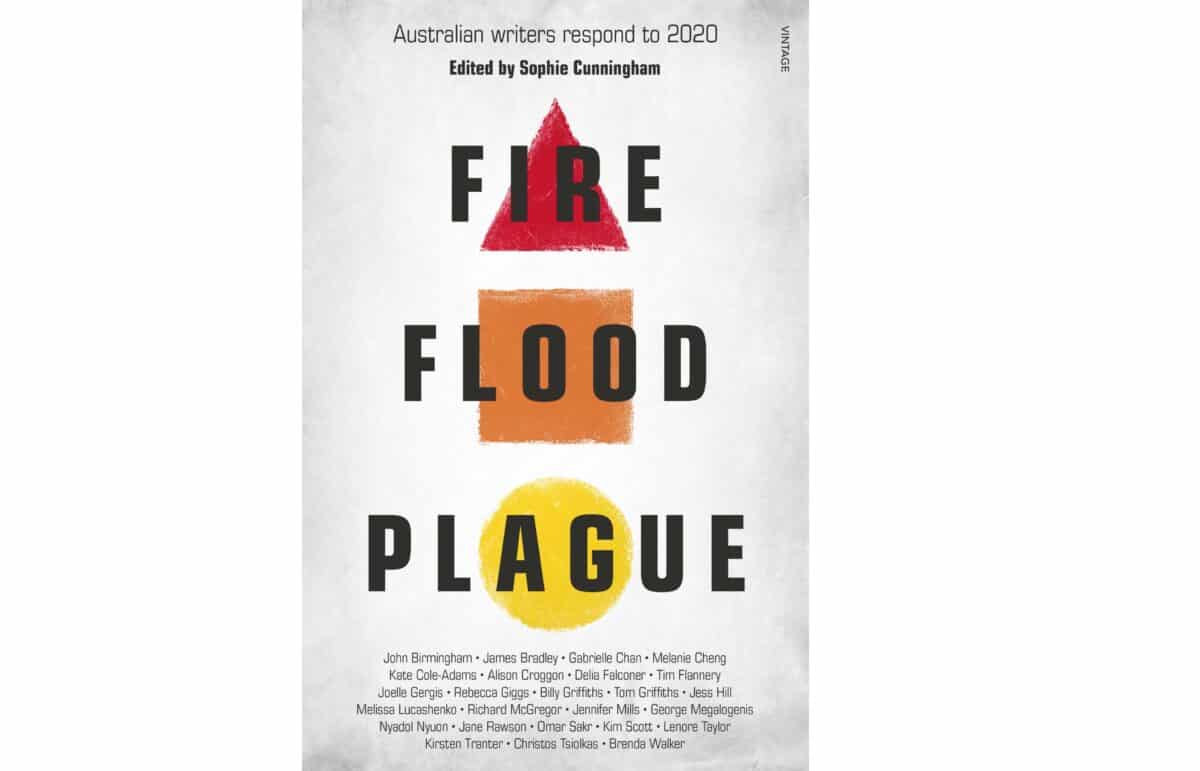In the middle of a pandemic, it is easy to be locked into small issues, especially if they directly relate to you, such as lockdowns or sick relatives but it is important to be reminded of the broader social context. Professor Michael Quinlan recently wrote an editorial for the Annals of Work Exposures and Health, entitled “COVID-19, Health and Vulnerable Societies”.
Category: economics
Business nuggets from the Australian Financial Review
It is not possible to write as many occupational health and safety (OHS) articles as I would like to, and my newspaper clippings files are bulging by the time I get some time to tidy up. The Australian Financial Review (AFR) is an expensive business newspaper that often touches on OHS matters even though OHS may not be the core of the story. Below is a short discussion of many of those clippings from 2020. Most of the AFR articles are paywalled but can often be tracked down through other measures.
Fire Flood Plague OHS
2020 is a year of continuing social change, so a book of essays that reflects on 2020 seems a little presumptuous. But just because we are in a state of social flux does not mean we must wait for stability before examining the process of change.
This December Random House Penguin will publish “Fire Flood Plague“, a collection of essays from prominent Australian writers about what Tim Flannery calls the three catastrophes:
“…the unprecedented, climate-fuelled megafires that were extinguished by damaging, climate-influenced floods. Then, in March, the COVID-19 pandemic…..”
page 69-70
There are some parallels between how people responded to these disasters and how workplace safety and health is managed. But more than that, the essays provide an insight into how others feel about what is happening, and these writers’ thoughts will reflect the thoughts of those with whom we work, with those we are obliged to manage and with those whose physical and mental welfare we are obliged to improve.
What the judge said about Dreamworld, other than the penalty

Some readers raised eyebrows on the article titled “No lessons in the Dreamworld penalty” but the point was that the occupational health and safety (OHS) due diligence and governance lessons were there months ago following the Coroner’s damning findings.
Most of the media’s attention has been on the record size of the financial penalty but looking at Judge Dowse’s decision in the case provides a better understanding of that penalty, the breaches of the safety legislation and the opinions of the judge.
Precarious Work, Pandemics and Australia’s Future – Let’s Not Forget the Link
This is a guest post by Michael Quinlan & Dr Elsa Underhill (links added).
In mid- August 2020 Victorian Premier Daniel Andrews labelled insecure work as toxic and argued a fundamental policy reset was required into the future. He stated:

Insecure work is toxic. There is nothing good about insecure work, and when this is done, when this virus has been beaten, we will need to commit ourselves to do something really significant about it. It is no good for anything, for families, for a sense of security [and] for public health, for any purpose. We have a lot of people who work very hard but have no safety net to fall back on and that is just not something we should settle for .
(Guardian 16 August 2020)
The observation generated little publicity and was soon forgotten as the Victorian COVID outbreak caused deepening concern across the nation. But the first major Australian political leader to call precarious work for what it demonstrably was should start a long overdue public debate.
Continue reading “Precarious Work, Pandemics and Australia’s Future – Let’s Not Forget the Link”Analysis of business impacts of COVID19

The Australian Industry Group recently released the results of a survey of its members about how COVID19 has affected their businesses. Understandably, the financial future of the businesses is the major concern but occupational health and safety (OHS) has been part of the business responses.
OHS was part of the initial scrabble to cope with the localised effects of a global pandemic. The report says
“Increased workloads due to new OH&S and healthcare procedures were still being reported by 6% of businesses in August, down from a high of 25% in the first stages of the pandemic in March. In Victoria, 10% of businesses reported concerns about the increase in this type of workload in August, compared with 2% in New South Wales and no businesses in Queensland.”
page 8
“This is how silly OH&S has become” Not really

Truck driving is one of the most contentious areas of occupational health and safety (OHS) in Australia. The transport industry has refined a reasonably practicable level of OHS to a high degree where levels of fatigue that would not be tolerated in other occupations are the norm. There also seems to be a negative attitude to OHS as an impediment to getting the job done rather than an investment in the health of drivers and the longevity of their careers.
These attitudes were on display recently in an inquiry into the “Importance of a viable, safe, sustainable and efficient road transport industry” undertaken by the Rural and Regional Affairs and Transport References Committee of the Australian Senate.




